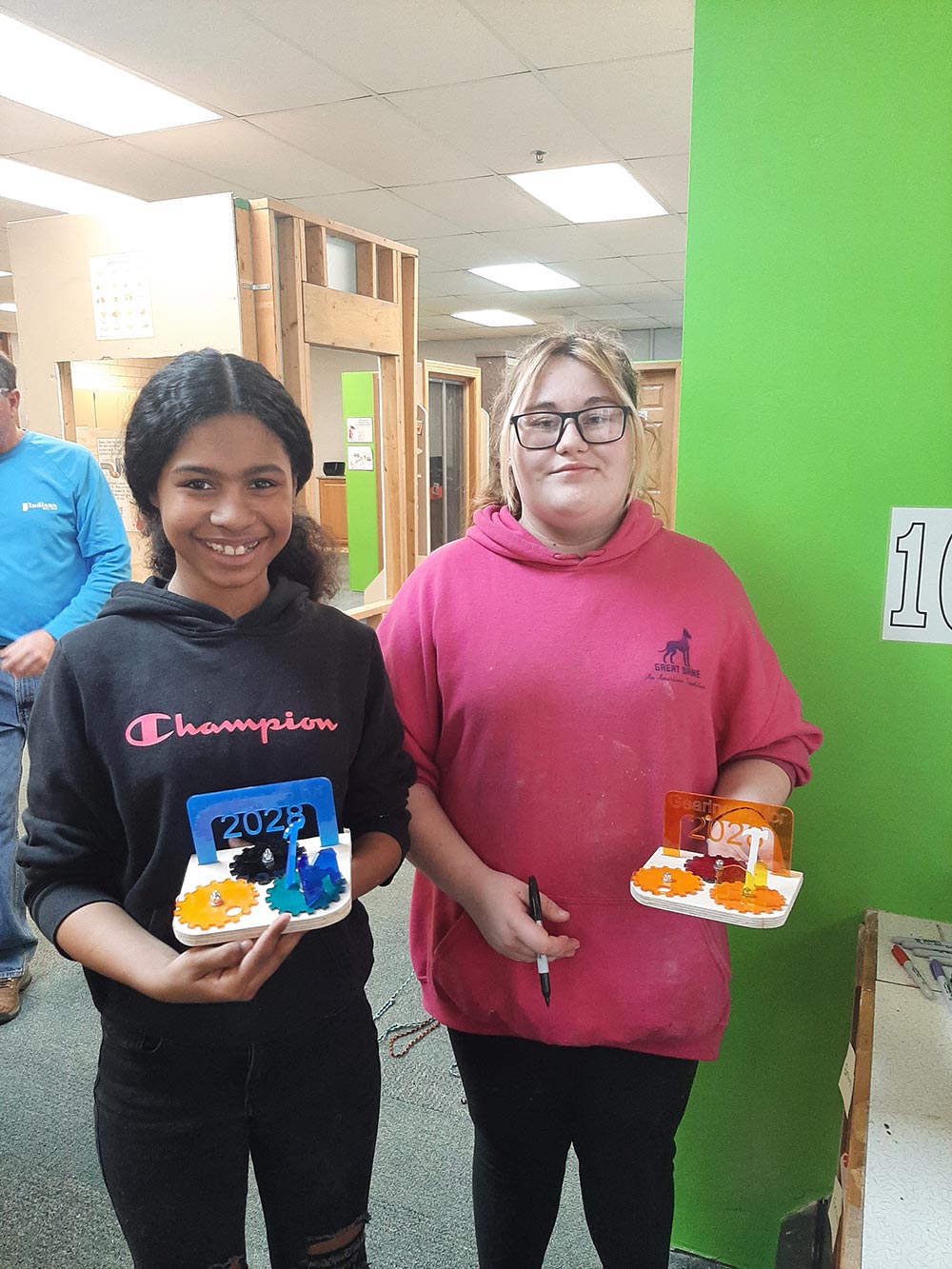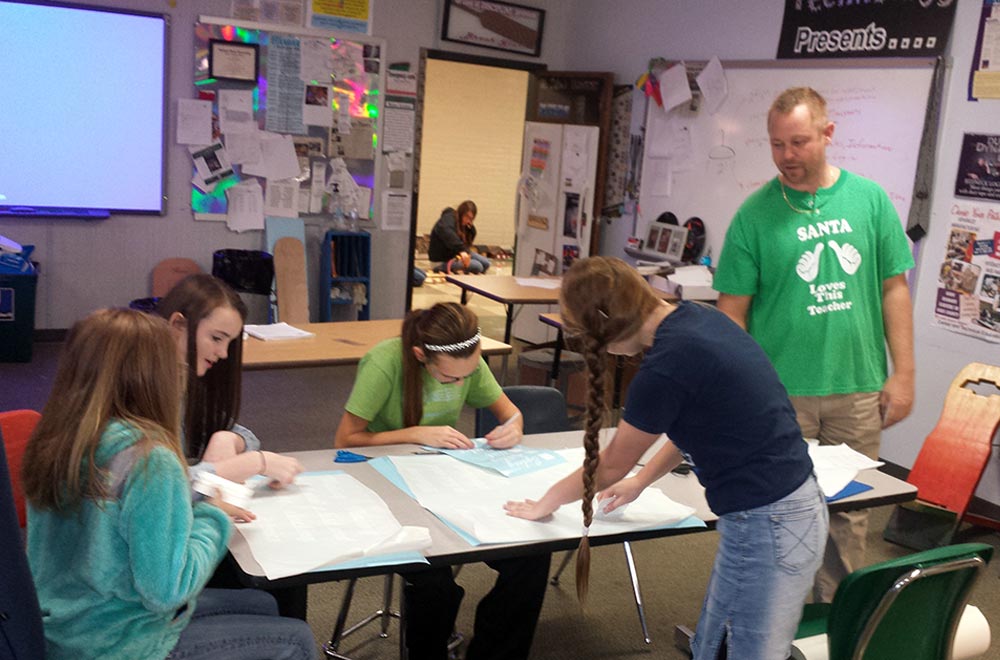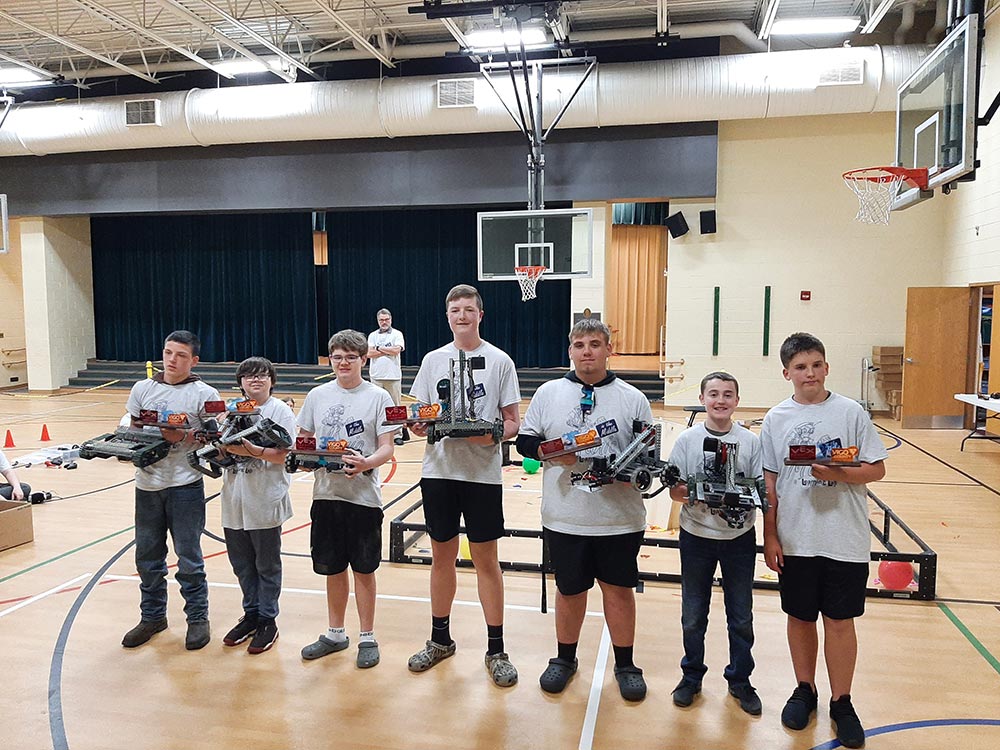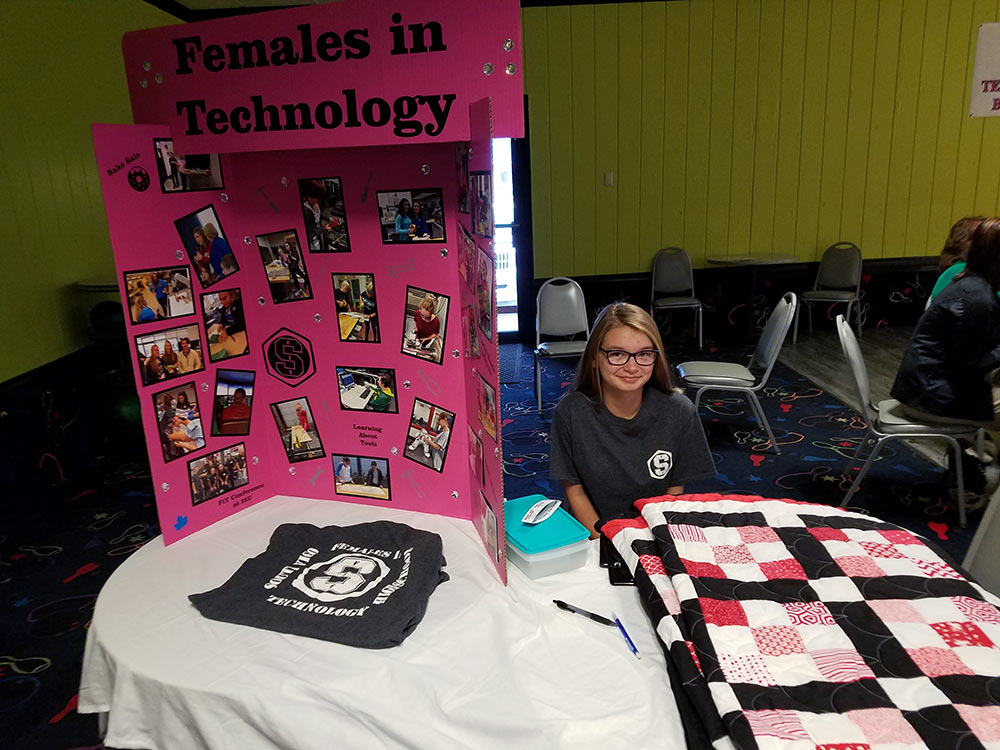Middle School
Preparing for College and Careers HS Credit Information (Course #5394)
Preparing for College and Careers addresses the knowledge, skills, and behaviors all students need to be prepared for success in college, career, and life. The focus of the course is the impact of today’s choices on tomorrow’s possibilities. Topics include twenty-first century life and career skills; higher order thinking, communication, leadership, and management processes; exploration of personal aptitudes, interests, values, and goals; examining multiple life roles and responsibilities as individuals and family members, planning and building employability skills; transferring school skills to life and work, and managing personal resources. This course includes reviewing the 16 national career clusters and Indiana’s College and Career Pathways, in- depth investigation of one or more pathways, reviewing graduation plans, developing career plans, and developing personal and career portfolios. A project-based approach, including computer and technology applications, cooperative ventures between school and community, simulations, and real life experiences.
This course is made up of the Business and Family Consumer Sciences rotation of the 8th grade year. Grades from both rotations will be averaged together to determine the final grade. Parents have the opportunity to accept the grade for high school credit if the grade is a “C-” or higher. Middle schools provide additional information about this process during the 8th grade year.


Middle Level Family & Consumer Sciences (FACS)
Middle level FACS prepares students to begin their journey toward becoming independent, productive citizens. The middle school curriculum includes standards for five units of study that are essential for ALL students: Life and Careers, Financial Literacy, Nutrition and Wellness, Human Development, and Relationships. Family and Consumer Sciences (FACS), Middle Level prepares students to acquire personal skills and plan ways to transfer those skills to the workplace; investigate and assume appropriate individual and family roles; understand and apply concepts of balancing work and family; and acquire skills and attitudes that lead them to contribute to the good of the community and society. FACS curriculum includes acquisition of problem-solving, decision-making, higher-order thinking, communication, literacy, and numerical skills in applied community, work, and family contexts. Students complete a rotation in both 6th and 7th grade.
Middle Level Business (BMIT)
Business and Information Technology, Middle Level provides concepts and applications that facilitate the development of competencies required for success in all academic areas and in real-world contexts. The curriculum relates closely to understandings and competencies students will need as their world expands and as they develop career interests. The four broad areas included in this curriculum are technology, career exploration, personal financial responsibility, and basic business (business communications, marketing, and entrepreneurship). The domains and standards for each area provide many opportunities to engage students in learning essential business content and in applying technology as a tool. This approach is in keeping with the National Education Technology Standards (NETS) approach, which places heavy emphasis on integrating technology into the curriculum. Students complete a rotation of this course in 6th and 7th grade.

Engineering and Technology Education
Engineering and Technology Education, Middle Level provides students with hands-on, problem-based learning opportunities to develop, produce, use, and assess products related to engineering and technology. Students additionally develop individual and teamwork skills to participate in society and the workplace. The four domains included in these standards are general engineering and technology concepts, engineering design and development, producing and using technology, and technology careers. Activities should focus on content related to engineering and technology as a body of knowledge, using resources and actions to: (1) apply engineering design, (2) use processes to produce artifacts and systems, (3) used devices tools and systems safely and appropriately, (4) and assess impacts on society and the environment. Activities include; Tech Town USA, USA Rockets, and VEX Robotics during rotations in all three years of middle school.
CTSO
Career & Technical Student Organizations
(Federal & State recognized)
** Access to student organizations and clubs vary by site**
- DECA – Student organization affiliated with the Marketing and Business Career pathways.
- HOSA – Student organization affiliated with all Health Sciences career pathways.
- FCCLA – Student organization affiliated with Hospitality, Human Services, Visual Arts, & Education.
- Educators Rising – Student organization affiliated with the Education Professions career pathway.
- Skills USA – Student organization that focuses on multiple career pathways and employability skills.
- FFA – Student organization affiliated with all Agriculture related career pathways.
- BPA – Student organization affiliated with Business career pathways.
- TSA – Student organization with a focus on STEM and Computer Science.
Career & Technical Clubs
** Access to student organizations and clubs vary by site**

- Super-Mileage – Student group from multiple disciplines that focus on designing and building fuel efficient vehicles.
- FIRST Robotics – Student group from multiple disciplines that partner with RHIT to design, program and build a robot to complete specific tasks.
- FIT (Females in Technology) – Student group designed to help support young women pursuing non-traditional career pathways.
- Robotics – Student group with a focus on Computer Science and Robotics that compete in various autonomous challenges.
Dual Credit / Industry Credentials
About Dual College Credits
- Dual college credit is an opportunity provided to students in many CTE classes. Enrolling in the high school class does not guarantee qualifying for or earning the college credit. High school students are responsible for completing the registration process. Not successfully signing up for or completing a dual college credit early in a career pathway can cause the student to be excluded from future opportunities because of prerequisite requirements.
- There are two ways that a student can earn college credit. The first is called “Dual College Credit” which means the high school teacher is teaching the student and the college credit is FREE. Dual college credit can be transferred to any State funded post secondary institution and is on a crosswalk maintained by the Commission for Higher Education. The second is called “Dual Enrollment” which means a college instructor is teaching the college content and this can be free or have an additional fee. Dual enrollment classes may or may not be accepted by all State funded postsecondary institutions depending if they are on the State maintained crosswalk.
Why is SSN collection required?
- A student providing their social security number (SSN) is a requirement of postsecondary institutions. If a student does not provide this on the application, the postsecondary institution cannot enroll the student and they will NOT be eligible for the college credit. The school district and postsecondary partner do not have the ability to go backwards and award college credit for previous learning if the student did not complete the registration process and meet the prerequisites at the start of the class.
Application/Forms to Enroll
Links to DC pages:
- Ivy Tech
https://www.ivytech.edu/programs/special-programs-for-students/high-school-programs/dual-credit/ - Most dual college credit is through the State community college system (Ivy Tech). There are a few specific career pathways that the dual college credit is through another institution like Indiana State University or Vincennes University. The high school teacher will help guide students through the process.
- The district also has agreements with some Federally registered apprenticeship programs. These agreements can result in preferred direct admittance into the program and one year credit in the apprenticeship program. Meaning if the program normally takes four years, it will only take three. Many of the apprenticeship programs also result in a postsecondary degree and/or technical certification.

